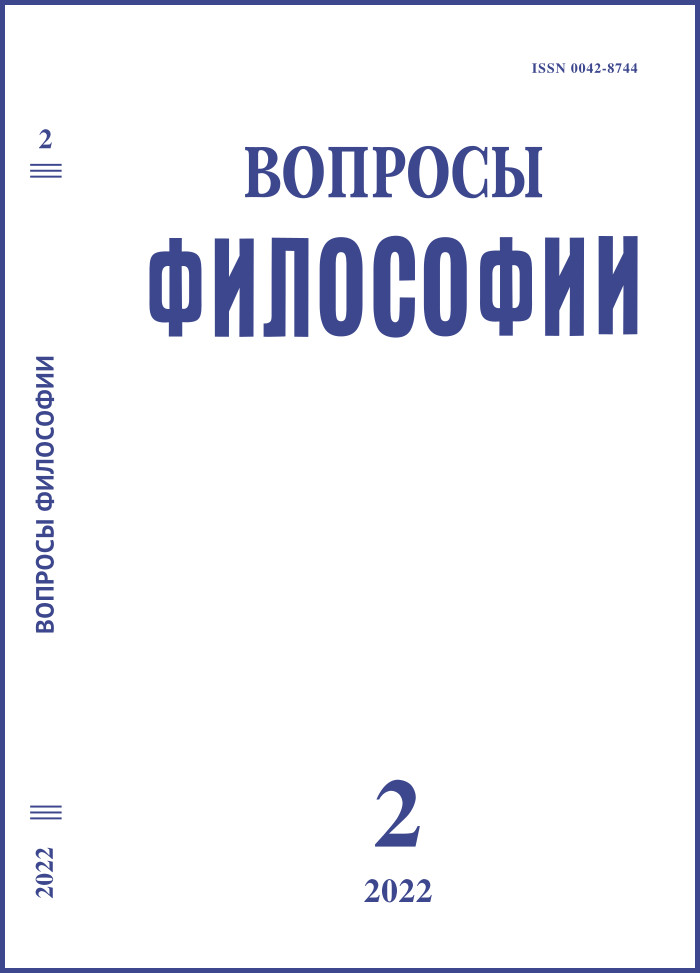The Engagement of India and the West in Socio-philosophical Concepts of Bhaktivinoda Thakur and Aurobindo Ghosh
DOI:
https://doi.org/10.21146/0042-8744-2022-2-205-215Keywords:
Ātman, Aurobindo Ghosh, Bhaktivinoda Thakur, Brahman, Indian philosophy, Gauḍīya-Vaiṣṇavism, neovedanta, social philosophy, philosophy of history, Vaishnava, varṇāśarama-dharmaAbstract
In the new geopolitical realities, India is increasingly showing itself as one of the leaders not only of world politics, but also of the Fourth industrial revolution, successfully combining commitment to its cultural traditions with the desire to modernize the lives of all its citizens. The desire and ability to unite inconsistent have been characteristic features of the Indian mentality since antiquity. They were clearly manifested in the socio-philosophical concepts proposed by the ideologists of the Indian Renaissance in the late XIX – early XX century, Bhaktivinoda Thakur and Aurobindo Ghosh. The analysis of their teachings, to which this article is devoted, draws attention to the presence in the philosophical thought of that time of two positions in relation to Western culture: the radical denial of Western values and their creative assimilation. Both thinkers were preoccupied with the problem of current state of society, which was not characteristic of classical Vedanta. They both criticized the West for excessive rationalism, and they both considered spiritual progress as the only tool for establishing harmony in society. But Thakur saw a decline in public life, the reason for which he saw in the departure from the original principles of varṇāśrama-dharma, which has been normalizing people's lives since ancient times, and he called for their restoration. Ghosh, on the other hand, thought globally: he told on the sense of universal human history as the realization of the Divine Absolute-Brahman in earthly life. He criticized and rejected Western socio-philosophical concepts as untenable for the reason of their discrepancies with the main values for him, which were: uniqueness and importance of every human being, and the need for all people to unite for the achievement of their oneness with Brahman.
Downloads
Published
Versions
- 2025-02-06 (3)
- 2025-02-06 (2)
- 2022-02-28 (1)

